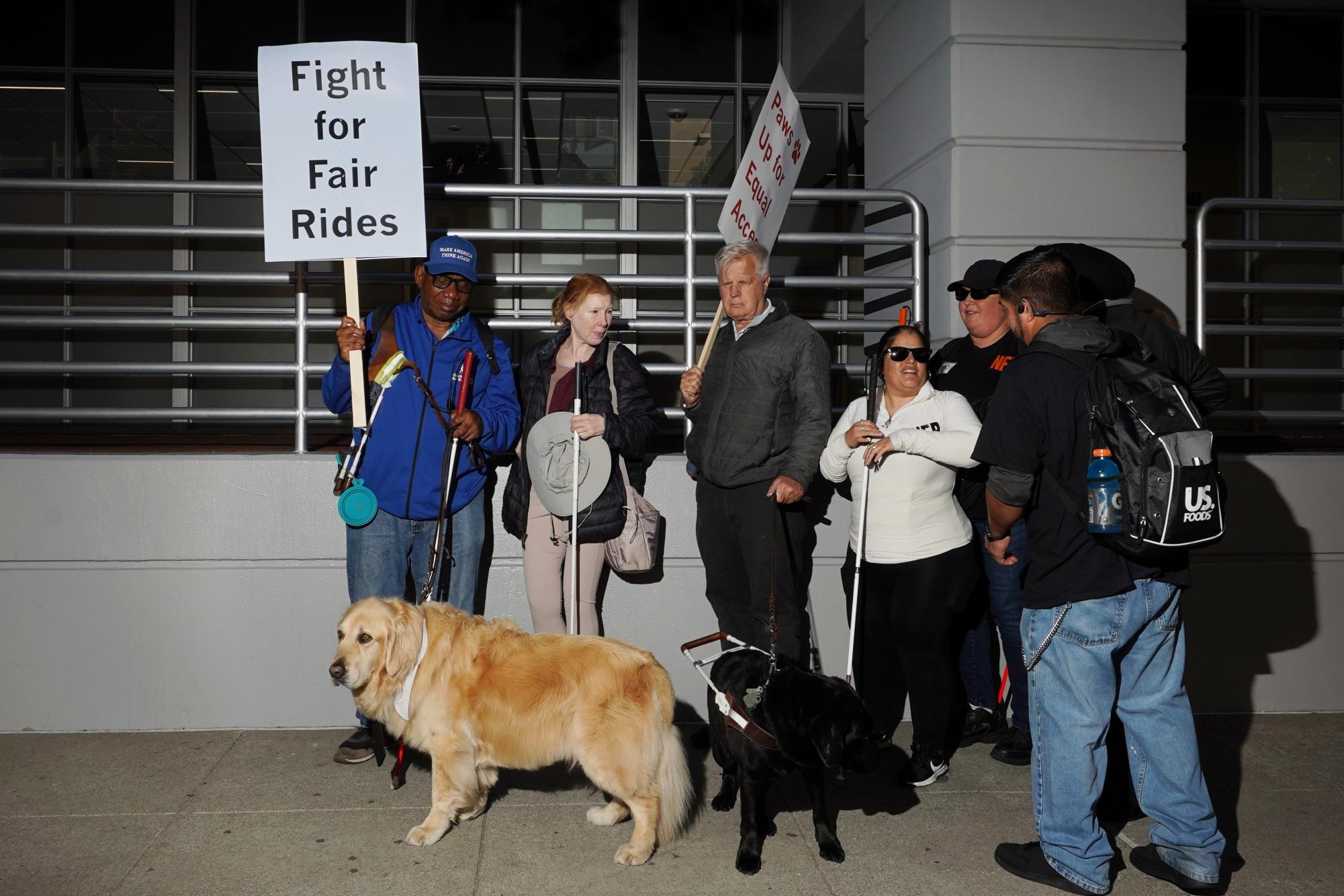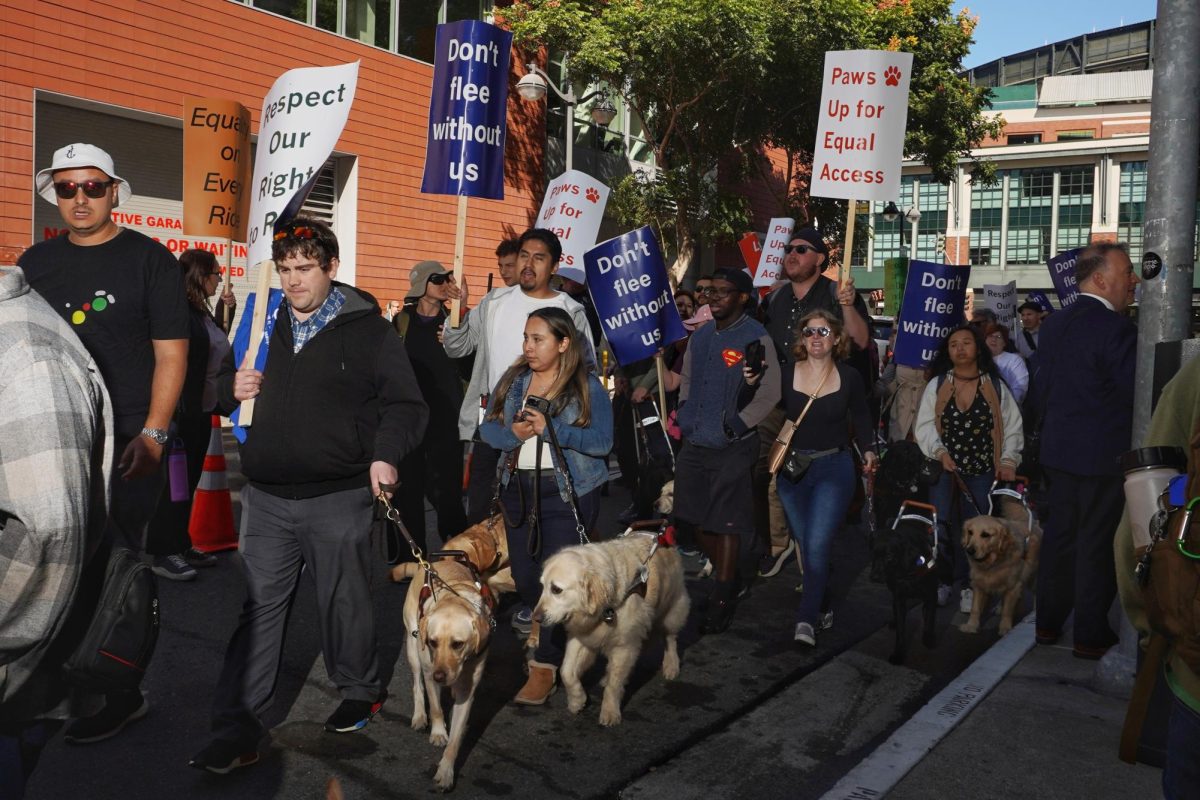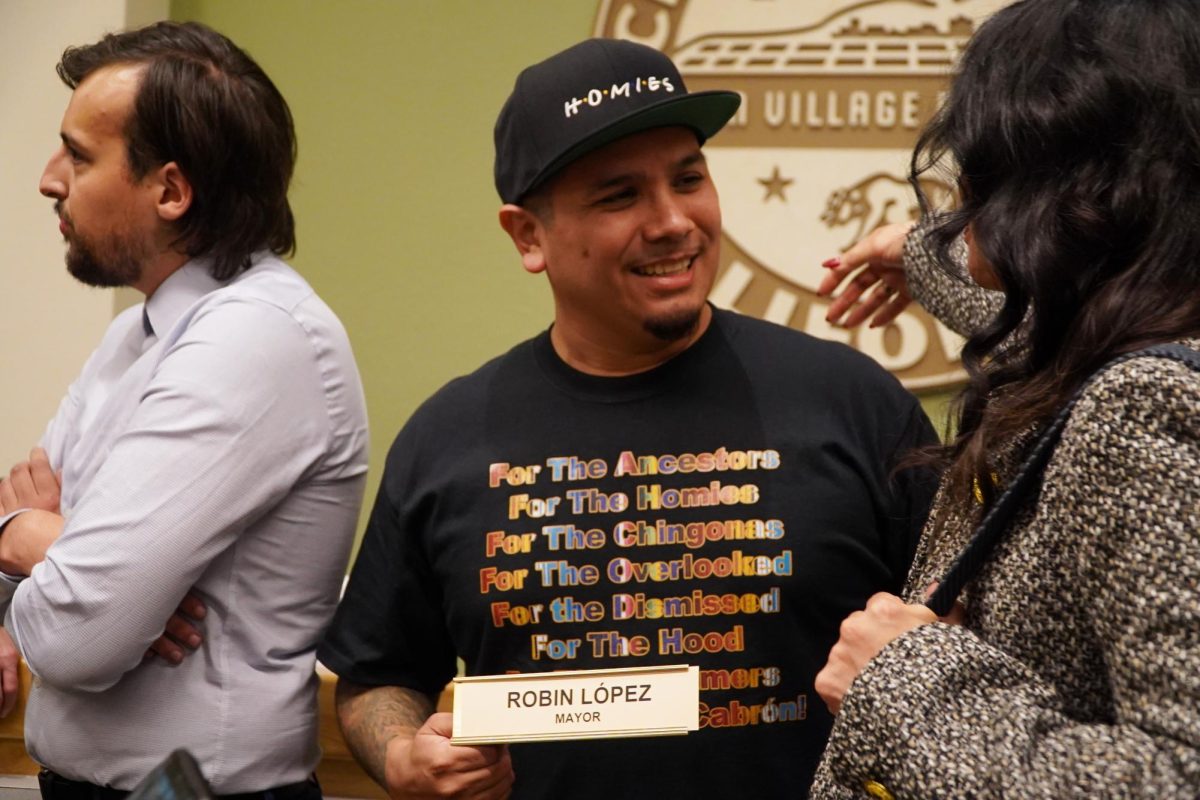On Oct. 15, White Cane Awareness Day, a day meant to celebrate the independence of blind individuals, over 150 protesters gathered outside the headquarters of Uber and Lyft in San Francisco to bring awareness to a persistent issue: discrimination against blind passengers, especially those with guide dogs.
The rally, organized by the National Federation of the Blind (NFB), a nationwide advocacy organization for the blind, highlighted the alleged failure of these rideshare companies to enforce their own policies prohibiting such discrimination.
“Uber and Lyft provide a service that is of tremendous benefit to blind people but these companies are failing to address discrimination against us that often leaves us stranded,” said Mark Riccobono, president of the NFB, in a press release issued prior to the rally. “This is no mere inconvenience; it violates the law, strips us of our dignity, and often endangers our health and safety.”
“It is obvious to us that those policies are either ineffective or not being strictly enforced,” said Chris Danielsen, the director of public relations for the NFB.
The rally drew blind individuals and allies from across the country, sharing stories of being denied rides, enduring discriminatory comments and facing the fear of being stranded without a ride.
Lindsay Kerr, a master’s student at San Francisco State University and member of the NFB, flew from Los Angeles just to join the protest. Kerr recounted an experience where a driver questioned the blindness of her and her friends and referred to guide dogs.
“I was traveling with two other guide dog users and myself. At that time, I was actually a cane user. And this particular driver had said to me that I had booked a ride for one person when we know that is not something that exists within the platform. And he was saying this mainly because he didn’t want to take the two dogs and this became apparent after he had made several comments, like ‘You’re too pretty to be blind,’” Kerr said. “We felt very violated and unsafe in the situation,”
Jenny De Los Santos, a protestor and a psychology student at SFSU, shared how she was nearly late for a flight due to being denied a ride because of her guide dog.
“One of the reasons why they denied me was because of the potential fur that they were going to get on in their car,” she said. “I should have been picked up because it was against the law to deny me.”

Olivia Norman, who traveled from Washington D.C. to attend the rallies, said she has been denied rides for about 50% of the time. She recounted a particularly upsetting incident where a driver refused to take her to a celebration for a new job, insisting she use Uber’s pet service instead.
“It turned what should have been a fun event into a sad event,” Norman said.
Uber and Lyft are both aware of the issue and have taken steps to address the discrimination, according to emailed statements provided to Golden Gate Xpress.
Uber emphasized the company’s policies against discrimination and highlighted recent updates to driver education.
“Our policies prohibit drivers from denying service because of a rider’s service animal or assistive device, and we are committed to implementing technology and policies that help make transportation more accessible,” the statement said. “Recently, we announced a new service animal handler, self-identification pilot and updated education module for drivers. These updates are a result of working with experts, like the National Federation for the Blind. We deeply value our partners within the disability community and know our work is never done.”
A statement provided by Lyft was similar.
“We strive to provide an inclusive and accessible platform for riders, including those who rely on service animals,” the statement said. “This year, we are launching a Service Animal Opt-In feature, allowing riders to disclose that they travel with a service animal when requesting a ride. This feature is a significant step in our broader mission to ensure that riders feel safe and supported on our platform.”
De Los Santos thought it was a step in the right direction.
“But the problem is that, it’s illegal to deny us regardless of whether or not I notify the driver,” De Los Santos said. “It is the federal ADA law — like I shouldn’t have to be notifying my driver.”
Norman remained skeptical.
“That’s gonna make the problem worse because they’ll see we have a guide dog and just cancel on us immediately. It’ll give them an easier way to discriminate,” she said.
Norman said the solution is to continue to educate drivers but emphasized that they need to be penalized when they refuse service.
“I think that they need to be terminated when they deny us,” Norman said. “They can’t just say, ‘Oh, we educated the driver.’ It’s not enough; it’s clearly not working, because they’re still denying us.”









Mrs.W • Oct 15, 2024 at 7:18 pm
This was a very informative article. Kudos to these smart, brave and inspiring individuals. Special thank you to Lindsay Kerr for her dedication and diligence.